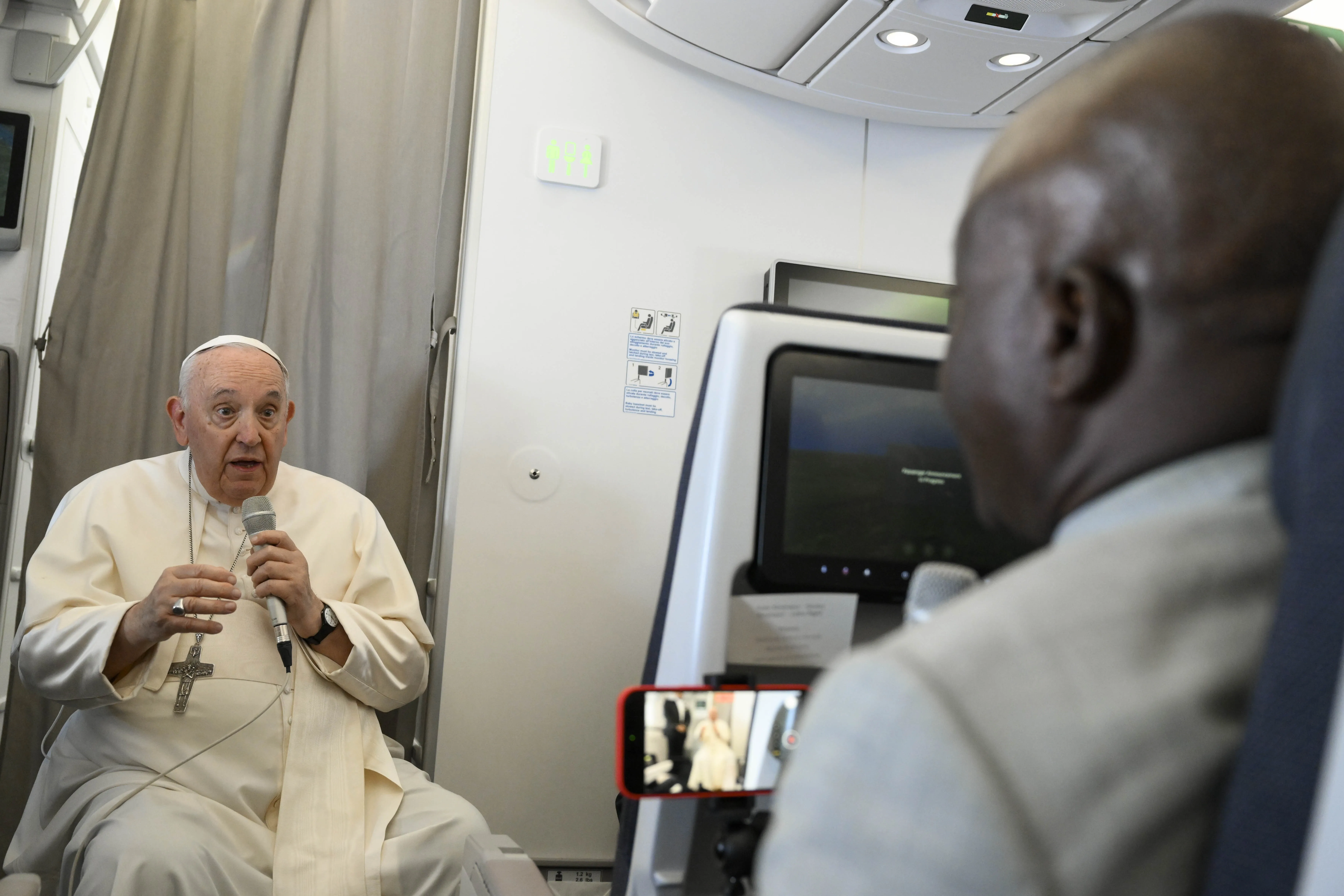
Pope Emeritus Benedict XVI’s death was used by people in a self-serving way, Pope Francis said aboard the papal plane returning from South Sudan on Sunday.
“I think Benedict’s death was instrumentalized by people who want to serve their own interests,” he said during an in-flight press conference Feb. 5.
People who instrumentalize such a good and holy person, Francis added, are partisans and unethical.
There is a widespread tendency to make political parties out of theological positions, he said. “I leave it alone. These things will fall on their own, or if they don’t fall they will move on as has happened so many times in the history of the Church.”
Pope Francis’ comments were made aboard the papal plane from Juba, South Sudan, to Rome, at the end of a six-day trip that also included nearly four days in the Democratic Republic of Congo.
In a papal first, the in-flight press conference included the participation of the pope’s Anglican counterpart, Archbishop of Canterbury Justin Welby, and the moderator of the Church of Scotland, Iain Greenshields.
Welby and Greenshields had joined Pope Francis in South Sudan for an ecumenical pilgrimage of peace and reconciliation. The two Christian leaders responded to some, but not all, of the questions on the papal flight.
Near the end of the nearly hour-long press conference, Pope Francis was asked if his papal ministry had become more difficult since Benedict’s death in light of growing division in the Church.
Francis reiterated that he was able to speak about everything with Benedict, even to change his own mind.
“He was always by my side, supporting me. And if he had any difficulty he would tell me and we would talk and there was no problem,” the pope said.
Pope Francis recalled once referencing civil solidarity pact, a law in France that allows nontraditional civil unions between two people to receive certain benefits without all of the rights and responsibilities of civil marriage. Francis had suggested this type of partnership as a possible solution for homosexual couples for the purpose of “securing property.”
After Pope Francis had made these comments, “a person who thinks he is a great theologian, through a friend of Pope Benedict, went to him and made a complaint against me,” the pope said.
Benedict’s response was not to be “shocked,” the pope added, but to call together “four top theological cardinals” to explain the concept to him.
“And that’s how the story ended,” he said. “[This was] an anecdote to see how Benedict moved when there were complaints.”
Benedict XVI, he emphasized, “was not a bitter man.”
Pope Francis visited the Democratic Republic of Congo and South Sudan Jan. 31-Feb. 5. Over the six days, he had moving meetings with local leaders, Catholics, and victims of war and conflict.
